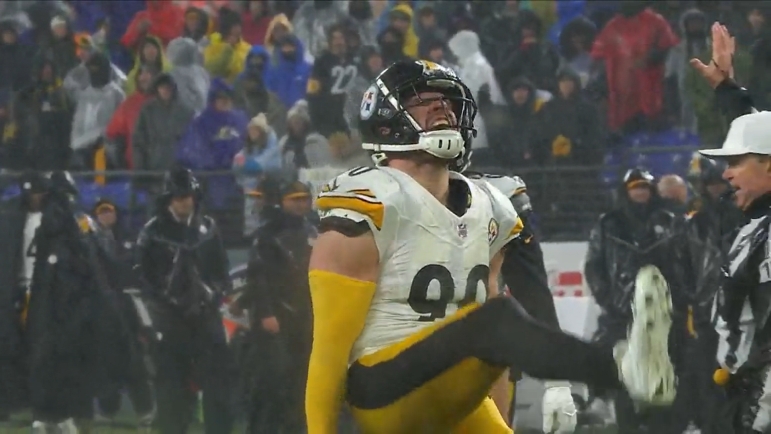T.J. Watt has been atop the list of the NFL’s best defensive players for five years now. He has received votes to be the league’s Defensive Player of the Year in four out of those five seasons, and a strong argument could be made that he was snubbed in two of the three years that he received votes but didn’t win.
There have only been eight players in league history to win it twice, including three players who won it in three separate years. T.J. Watt’s older brother, J.J., is one of those three players. It is going to be difficult to catch up to his older brother at this point, but could he still join the elite ranks and become the ninth player to win it more than once? Based on history, 2024 could be his best chance to make that happen.
Watt will turn 30 years old in October, and there have been just seven total players who were 30 or older to win the Defensive Player of the Year award. Those players are Mike Singletary (30), Michael Strahan (30), James Harrison (30), Jason Taylor (32), Bruce Smith (33), Charles Woodson (33), and Reggie White (37).
So if Watt doesn’t win in 2024, he will have to accomplish something that only four other players have done: winning the award while 31 years or older.
When healthy, Watt hasn’t shown any signs of slowing down and has already made NFL history, becoming the first player to lead the league in sacks in three separate seasons. He also owns the single-season sacks record with Strahan at 22.5. He is continually re-writing the Steelers’ history record books, so I will not doubt his ability to surprise me with another DPOY award or two in his final handful of seasons.
As it stands now, Watt has the third-best odds to win the 2024 award via FanDuel and is tied for the highest odds via DraftKings. A healthier defense with some solid offseason additions should help his case.
If the secondary is forcing an extra half second before receivers are getting open, that could be enough to bring in a few extra sacks for Watt and put him over the top of his competition. A more competitive offense that can build and maintain leads should also force more teams to throw rather than run.








